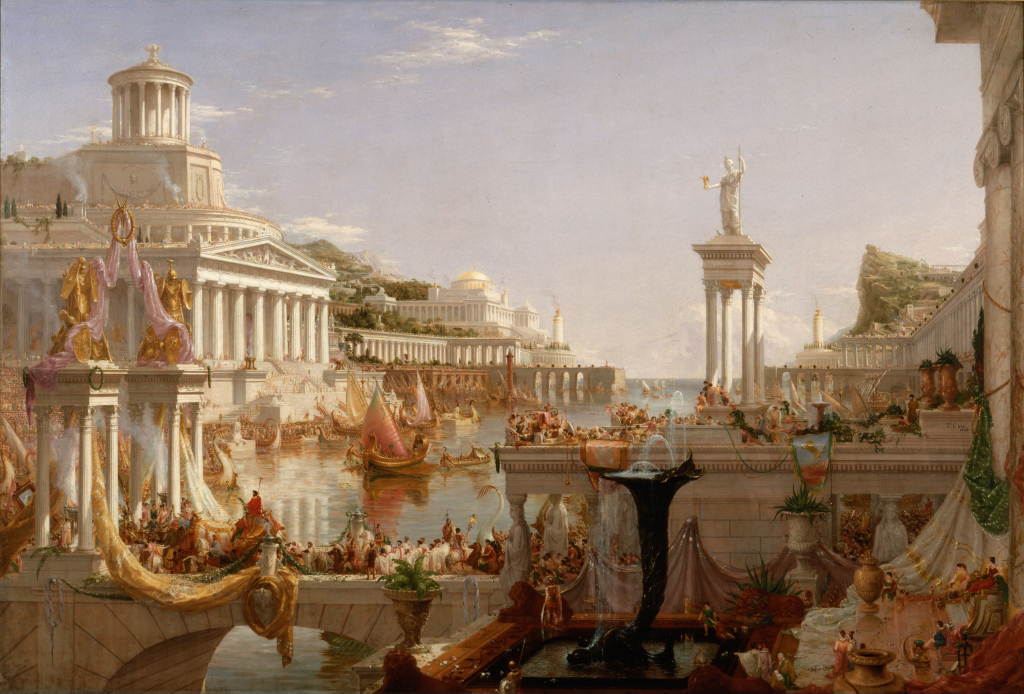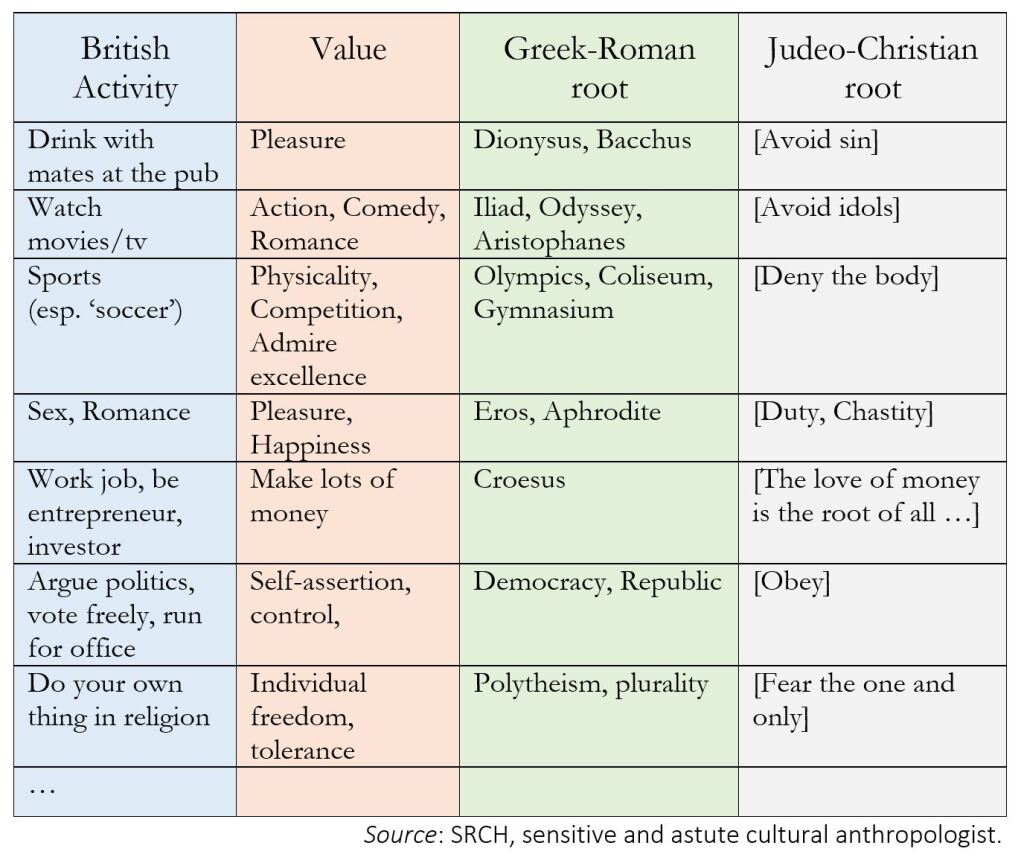A spot more cultural history following up on my “80%” comment about British culture–in response to a line from Nigel Farage saying “everything in our country and culture is based on Judeo-Christian values.”
Consider the education of future British leaders from the 1600s through the 1800s, the formative years for modern British culture. In modern British schools, especially the public schools in which the elite and the aspiring were educated, Greek and Roman culture formed the core of the curriculum. Note this recommendation from Alexander Pope’s influential An Essay on Criticism (1711):
“Be Homer’s Works your Study, and Delight,
Read them by Day, and meditate by Night,
Thence form your Judgment, thence your Maxims bring,
And trace the Muses upward to their Spring;
Still with It self compar’d, his Text peruse;
And let your Comment be the Mantuan Muse.“
Virgil is the Mantuan Muse. It’s the Greek epics Iliad and Odyssey and the Roman epic Aenid are urged as fundamental to the education of a British youth of ambition.

So many new editions of Greek and Roman texts were produced in the 1700s that it’s impossible to list them all: Aristotle’s Rhetoric, Cicero’s De Oratore, Quintilian’s Institutes of Oratory, and many others. One consequence was the bestseller status of Gibbon’s The Decline and Fall of the Roman Empire (1776). (The same year that a new democratic (Greek) republic (Roman) country was founded across the Atlantic by intellectual activists steeped in British Enlightenment ideals.)
All things Greek and Roman were the classics that formed the core of modern British education, especially for the elite youth who were to become the leaders of government, law, business, literature, and the arts. In “Education in the 18th Century – Boys,” author Julia Brannan summarizes:
“The heart of an education in the eighteenth century was based on the classics. They would learn reading, writing, mathematics, Greek and Latin. Many would also learn logic, history and geography. Latin and Greek were crucial in preparing a boy for university, but also we must remember that this was a time when the teachings of the ancients, Cicero, Plato, Aristotle etc., were extremely influential in all aspects of intellectual life, from philosophy to mathematics, to science and medicine. It would have been very difficult for a boy to take his place in the middle or upper class adult world without an understanding of the classical teachings and literature.”
[Here again is the starter table: One knows current British values from what current Britons do. Their waking hours are devoted to work, friends and family, leisure, and so on. So let’s make a starter table (with all caveats implicit about variations and exceptions)].

Do feel welcome to add rows to this starter table. (We can argue more over a pint. Or over tea and crumpets.) A working template is here.
Related: J.S. Mill on the great British values of free thinking, free discussion, and open debate.
Drink with mates at the pub – Christian element – Fellowship and Gratitude
Watch Movies- Christian element – The Parables of Christ, The spectacle of Revelation
Sports – Christian element – “Do you not know that in a race all the runners run, but only one gets the prize? Run in such a way as to get the prize.” 1 Cor. 9:24
Sex, Romance – Christian element – The Song of Soloman, Various Biblical love affairs
Work, Job – Christian element – You shall not steal, “Don’t I have the right to do what I want with my own money?” Mt. 20:15
Argue politics – Christian element – Gobs of polemics: Jesus/Pharisees, Paul/everybody
Do your own thing in religion – Christian element – If someone persecutes you “turn the other cheek.”